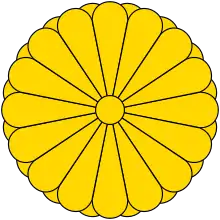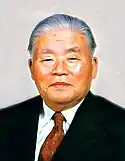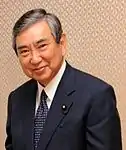1980 Japanese general election
General elections were held in Japan on 22 June 1980. They were the result of a vote of no confidence brought by the Japan Socialist Party (JSP) on 16 May regarding corruption and rises in public utility charges as reasons for the House of Representatives of Japan (lower house) to withdraw its backing from the government.
| |||||||||||||||||||||||||||||||||||||||||||||||||||||||||||||||||||||||||||||||||||||||||||||||||||||||||||||||||||||||
All 511 seats to the House of Representatives of Japan 256 seats needed for a majority | |||||||||||||||||||||||||||||||||||||||||||||||||||||||||||||||||||||||||||||||||||||||||||||||||||||||||||||||||||||||
|---|---|---|---|---|---|---|---|---|---|---|---|---|---|---|---|---|---|---|---|---|---|---|---|---|---|---|---|---|---|---|---|---|---|---|---|---|---|---|---|---|---|---|---|---|---|---|---|---|---|---|---|---|---|---|---|---|---|---|---|---|---|---|---|---|---|---|---|---|---|---|---|---|---|---|---|---|---|---|---|---|---|---|---|---|---|---|---|---|---|---|---|---|---|---|---|---|---|---|---|---|---|---|---|---|---|---|---|---|---|---|---|---|---|---|---|---|---|---|---|
| Turnout | 74.57% ( | ||||||||||||||||||||||||||||||||||||||||||||||||||||||||||||||||||||||||||||||||||||||||||||||||||||||||||||||||||||||
| |||||||||||||||||||||||||||||||||||||||||||||||||||||||||||||||||||||||||||||||||||||||||||||||||||||||||||||||||||||||
| |||||||||||||||||||||||||||||||||||||||||||||||||||||||||||||||||||||||||||||||||||||||||||||||||||||||||||||||||||||||
 |
|---|
| This article is part of a series on the politics and government of Japan |
|
|
Unexpectedly, 69 Liberal Democratic Party (LDP) members of the Diet from the Fukuda Takeo, Miki Takeo and Hidenao Nakagawa factions abstained from voting on the motion. The government was defeated by 56 votes in total of 243 and resigned.
For the first time, elections for the both houses of the Diet were called in June 1980. During the election, Prime Minister Masayoshi Ōhira, the leader of the Liberal Democratic Party died during the campaign. Ōhira had expected the vote of no confidence to fail, and was visibly shaken when it passed by a margin of 243–187. Sixty-nine members of his own LDP, including Fukuda, abstained. Given the choice of resigning or calling new elections, Ōhira chose the latter and began campaigning for LDP candidates. He was hospitalized for exhaustion on 31 May and died of a massive heart attack 12 days later.
Chief Cabinet Secretary Masayoshi Ito acted in Ōhira's place as deputy after his death. In the elections of both the houses LDP gained a majority. The election results for the lower house are shown in the table below. Yoshio Sakurauchi, the Secretary General of LDP, led the LDP to its greatest victory in fifteen years, capitalizing on the "sympathy vote" generated by Ōhira's death. The Prime Minister was succeeded by Zenkō Suzuki after the election.
Election results
| Parties | Candidates | Votes[3] | % | Seats | +/- (dissolution) | |
|---|---|---|---|---|---|---|
| Liberal Democratic Party (LDP) | 310 | 28,262,442 | 47.88% | 284 | ||
| Japanese Socialist Party (JSP) | 149 | 11,400,747 | 19.31% | 107 | ||
| Japanese Communist Party (JCP) | 129 | 5,803,613 | 9.83% | 29 | ||
| Justice Party | 64 | 5,329,942 | 9.03% | 33 | ||
| Democratic Socialist Party (DSP) | 50 | 3,896,728 | 6.60% | 32 | ||
| New Liberal Club (NLC) | 25 | 1,766,396 | 2.99% | 12 | ||
| Social Democratic Federation (SDF) | 5 | 402,832 | 0.68% | 3 | ||
| Center-left opposition | 144 | 11,395,898 | 19.30% | 80 | ||
| Others | 42 | 109,168 | 0.18% | 0 | ||
| Independents | 61 | 2,056,967 | 3.48% | 11 | ||
| Totals (Turnout 74.6%, incl. invalid votes) | 835 | 59,028,837 | 100.00% | 511 | (vacant seat) | |

Notes
- Ōhira died 10 days before the election.
References
- Ministry of Internal Affairs and Communications (MIC), Statistics Department, Long-term statistics, chapter 27: Public servants and elections, sections 27-7 to 27-10 Elections for the House of Representatives
- Interparliamentary Union (IPU): 1979 and 1980 Shūgiin elections
- Fractional votes rounded to full numbers


